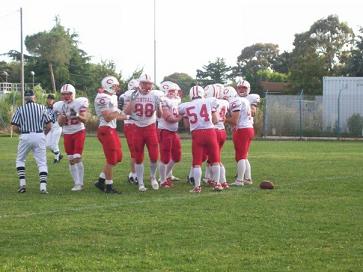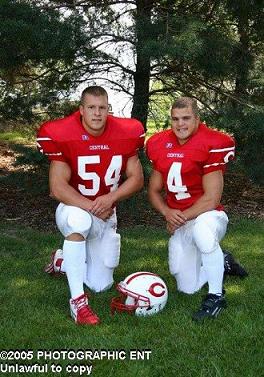Last week, the first weekend in March, Pella Public High school competed in the Iowa Women’s High School Basketball championships2, the first step of March Madness, which may be defined as the frantic, almost manic behavior of basketball fans3 related to championship tournaments4 during the month of March. Basketball championships are held at every level of the sport, for both males and females, from high school through professional levels. There are about 500 high schools in Iowa5, so it is considered an honor when one’s favorite basketball team qualifies for the championship tournament. This year the Pella Community High School’s women’s team had a season’s record of 24 wins and 1 loss; they won their conference competition6 in basketball, and thus qualified7 to enter the state-level championship tournament.
One might ask where all of this enthusiasm for a sport began. When developed in about 1892, the sport of basketball was a men’s-only sport, invented by James Naismith8, a YMCA9 physical education instructor in Springfield, Massachusetts. It was devised as a conditioning exercise10 for men between the football and baseball seasons. Naismith moved to Lawrence, Kansas, began coaching basketball at the University of Kansas, and the game became popular and spread rapidly, largely because it could be played indoors, free from the harsh winters in that part of the country.
Women’s basketball began in about the 1920s, mostly in high schools in Kansas11, Iowa, and Oklahoma12. Women were believed to be physically weaker, and unable to repeatedly run the length of the basketball court. For this reason, women’s basketball became a 6-player sport instead of a 5-player sport as in men’s basketball. Three players were “shooters” and played only in the forward court beyond the center line: the other three were “guards” and played only in the backcourt. Players could not cross the center line, and a player could make only one bounce or “dribble13” of the ball before passing to another player or shooter. It soon became apparent that specialization in skills resulted in shooting accuracy for women which was much higher than in men’s basketball. In Iowa in the 1950s, one woman player in Iowa scored more than 100 points in a single game, and she averaged about 75 points per game14. Free throw shooting15 percentage for women was also higher than for men at that time.
In Iowa, women’s basketball became so popular that virtually every high school having more than six women in the school had a basketball team, often the pride of the entire community16. Women’s basketball was often a reason why consolidation of smaller rural schools17 was not approved by vote of the community residents. No small town wanted to lose its women’s basketball team by losing its school. In Iowa, 6-player women’s basketball became well organized, but in other states the women often played 5-player basketball with rules like those of men’s basketball.
Initially18 state tournaments made no distinction between smaller and larger schools, and many small schools were known for their women’s basketball teams. As the sport became more popular, competition at the state level was divided into classes depending upon the number of students in the school. Currently there are four divisions, the smaller schools in the 1A class followed by 2A, 3A and 4A for the large city schools. Teams play in conferences or groups of schools of similar size, and they compete at the regional level to reach state championship competition.
By the1950s women’s basketball began in colleges and universities as a 5-player sport with rules identical19 to men’s basketball. It soon became evident that Iowa’s female basketball players, whose skills, however excellent, were those of only a shooter, or only a guard, did not prepare them for collegiate level basketball20. There was a movement throughout the U.S. to change women’s 6-player basketball to a 5-player sport in high schools as well, but Iowa resisted21 this change for a few years.
However, improved physical conditioning for women athletes permitted them to easily convert22 to 5-person basketball. By 1960, when the Iowa High School Women’s Athletic Association finally approved a change to 5-player rules, a large number of schools continued to play 6-player basketball and there were two separate basketball championship tournaments held, the 6-player and the 5-player competitions.
By this time women’s basketball was played in virtually every state in the U.S. In the mid-1960s the National Collegiate Athletic Association was given the mandate23 by the U.S. Supreme Court24 that women’s sports at the college/university level must be supported financially at the same level as men’s sports. In effect25, this was the end of 6-player basketball in Iowa, and within a few years only 5-player championship tournaments were held.
March Madness can be seen readily at the women’s high school basketball tournaments.
Fans show off26 their school colors27 For example, Pella High School has green and white as their official colors. Some fans may paint their faces, half green, half white, some dye their hair the school colors, some wave pompoms28 or school flags, some have noise makers, and odd clothing. Many fans display large posters in green and white colors, and some young men even shed their shirts and have large green letters painted on their chests to spell out PELLA, or DUTCH29 , the nickname for Pella’s teams. There is loud shouting, playful antics30, and much laughter and foot stamping31; especially if the game is closely contested. Often the losing team is in tears, along with their cheerleaders and ardent32 fans. Sometimes, the winning players are in tears as well, as their emotions finally show and they realize their fondest dreams of victory! Winning teams hold high their shiny trophy33 which is presented to them by some prominent34 supporter of the tournament. State and national politicians are often in attendance35, and interviewed prominently on TV. Some admit to having attended the women’s tournament for more years than they care to remember. Coaches also often show emotions of joy or disappointment36. Pella fans and players had had high hopes of winning a state championship but they lost by a score of 43-40. Receiving a second place trophy did little to stop the flow of tears. Still, the community and the players were proud of their team, and as they say, “Just wait until next year!”
Last week’s edition of March Madness gives way37 this week to the Men’s High School Basketball tournament, and in about two weeks the college/university national championships will occur, followed later by professional38 basketball championships.
Well, the madness is upon us, and the weather is appropriately cold and snowy. Maybe this is, after all, a good way to escape the doldrums39 of winter weather at this time of year, and it certainly is effective in developing fan support for schools everywhere.
Notes:
1. March Madness: excessive enthusiasm or loud, overt behavior typical of athletic fans at an athletic event or competition (疯狂的三月).
2. championships: 锦标赛
3. the frantic, almost manic behavior of basketball fans: 篮球粉丝的紧张、几近疯狂的行为。
4. tournaments: 锦标赛,联赛
5. Iowa: the name of a state in the Midwest region of The United States (爱荷华州,美国中西部地区的一个州).
6. conference competition: In the U.S. schools of about the same size and in the same geographic area are combined into groups, referred to as conferences, which compete with one another in athletic, musical, and academic contests (联合会比赛,在美国大小相同的又在同一地区的几所学校称作联合会, 互相在体育,音乐以及学科方面展开竞赛). These may be changed as school sizes change. Pella High School is currently a member of the Little Hawkeye Conference consisting of 8 schools in south central Iowa.
7. qualified: meeting the requirements for a certain activity or office (够资格的).
8. James Naismith: the name of an athletic coach responsible for inventing the game of basketball (詹姆斯•奈史密斯,体育教练,篮球创始人).
9. YMCA: an organization, the Young Men’s Christian Association, formed in 1881 in Springfield, Massachusetts to promote physical and spiritual development in young men (基督教青年会,该组织于1881年在马萨诸塞州的斯普林菲尔德建立,旨在促进年青人身体和思想的发展).
10. conditioning exercise: development of muscular strength and endurance by physical exercise (提高肌肉强度和耐力的体育锻炼).
11. Kansas: 堪萨斯州
12. Oklahoma: 俄克拉荷马州
13. dribble: in basketball, move the ball along with you by short bounces, or hits (篮球运球). In men’s 5-player basketball a player may advance with the ball by dribbling as many times as necessary to move to a desired area. In women’s 6-player basketball the players are permitted only one bounce when moving on the court.
14. she averaged about 75 points per game: this means that in each game she scored about 75 points in the basketball games in which she played (她平均每场比赛投篮得75分). Many athletic performances are stated in average points, or wins over a period of time.
15. free throw shooting: in basketball, an unguarded shot or shots taken by a player from the free throw line which is 15 feet from the goal (basket) (投罚球,在距离球篮15英尺的罚球线没人阻拦地投球). Free throws are awarded to a player of one team when an opposing player makes physical contact that interferes with the normal play of the game.
16. the pride of the entire community:整个社区的骄傲
17. consolidation of smaller rural schools: the combining of smaller schools in the rural area into a larger school (农村小学校的合并).
18. Initially: at the beginning (最初).
19. identical: exactly the same, or very similar (一模一样).
20. collegiate level basketball: 大学层次的篮球赛
21. resisted: tried to prevent a change from happening (抵制).
22. convert: change into a different form of thing (转变).
23. mandate: a regulation or rule required as a result of legislation or court order (命令,指令). The U.S. Supreme Court, in a ruling on equal opportunity in higher education, Title IX, required that schools offering athletic competition for one sex are required by law to offer athletic training and competition in the same sport for the opposite sex. i.e., if men’s basketball is offered in a college or university, then women’s basketball must be supported at an equivalent level.
24. the U.S. Supreme Court:美国最高法院
25. In effect: 实际上,事实上
26. show off: try to make people admire what you have (炫耀,卖弄).
27. school colors: the specific colors for each school chosen as its own representative colors, ie. black and white, red and gold, etc. (学校的代表颜色,如黑与白色,红与金色). This choice is usually made by the school administration, or by a vote of all members of the school community. These colors are recognized as the “official colors” for that school system and may be used on athletic uniforms, school flags, etc.
28. pompoms: an item consisting of many colored strips of paper of the school colors, mounted at the end of a short stick, to be held in the hand and waved or used in cheering or supporting one’s athletic team (大绒球,用许多代表学校颜色的细纸条做成,绑在一根短棒头上,欢呼或支持自己的运动队时,抓在手上挥舞用).
29. DUTCH: The nickname which Pella Community High School has adopted for its athletic teams (荷兰人,派拉地区高级中学为自己的运动队取的别名). The nickname was chosen because Pella was originally settled by immigrants from the Netherlands (Holland) and the city still shows many evidences of the Dutch culture, and many of the family names in the schools are Dutch.
30. antics: behavior that seems strange, funny, silly, or annoying (滑稽行为).
31. foot stamping: 跺脚
32. ardent: showing strong feelings of love (热切的,热情的).
33. trophy: an award given to the victorious team in an athletic event (奖杯).
34. prominent: important
35. in attendance: at a special or important event (出席).
36. disappointment: 失望
37. gives way: be replaced (让路,由……取代).
38. professional: 职业的
39. doldrums: a state of inactivity or stagnation often associated with adverse stormy weather during the winter (萧条,停滞,往往是跟冬天不利的风暴天气有关).

